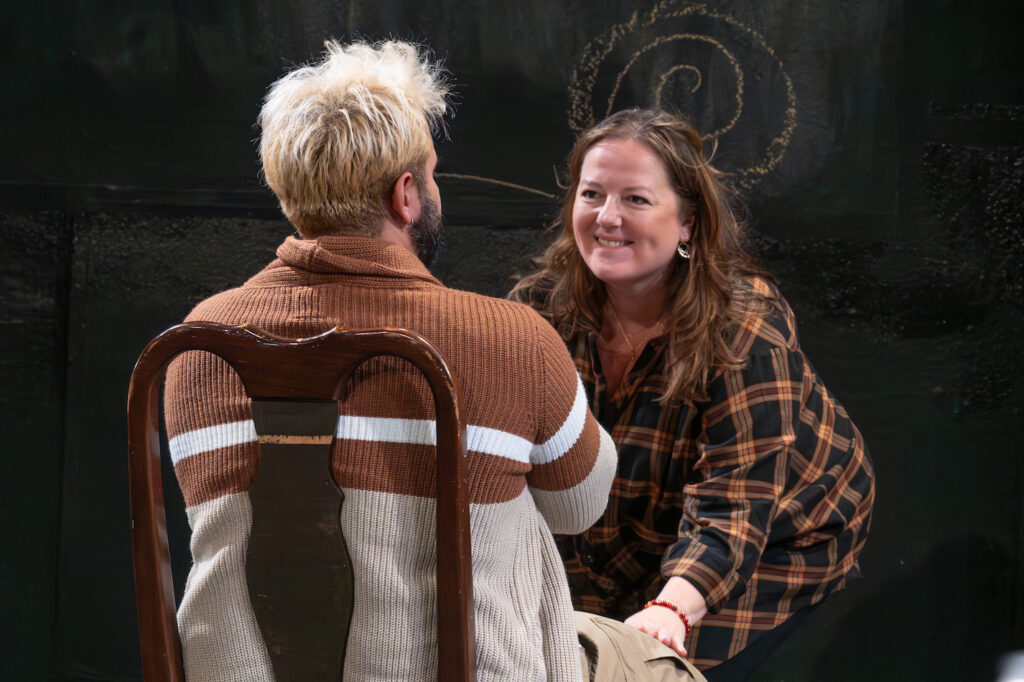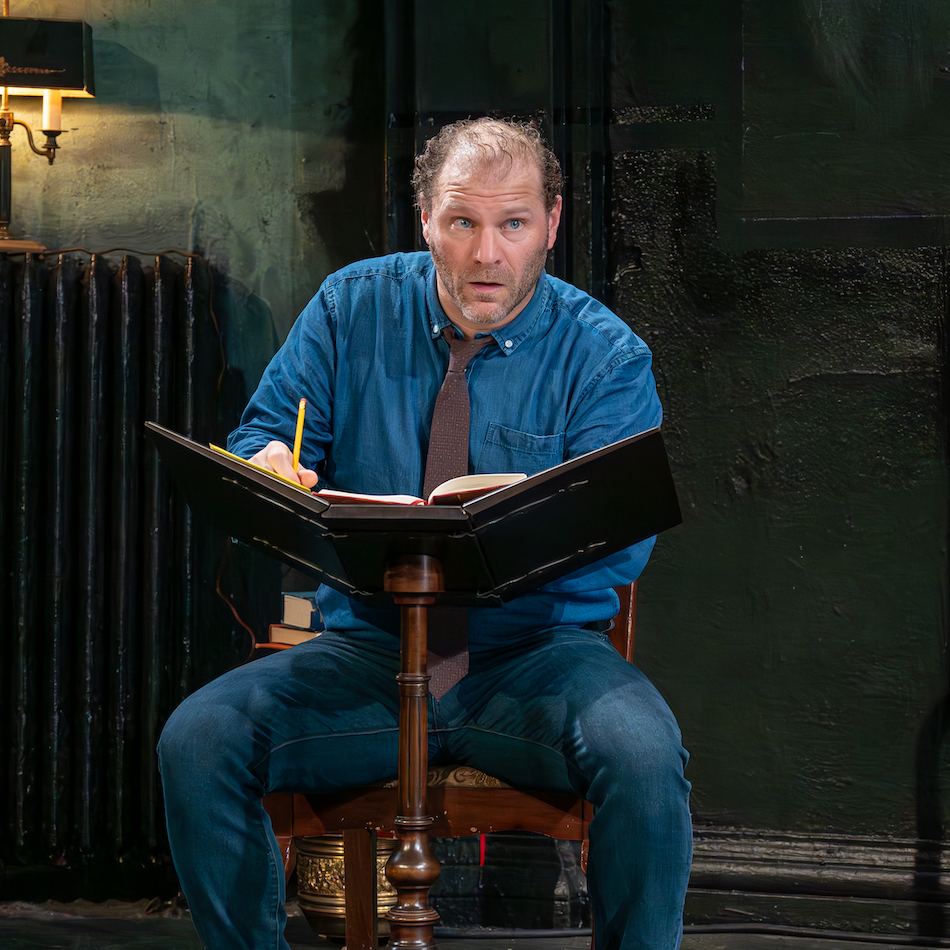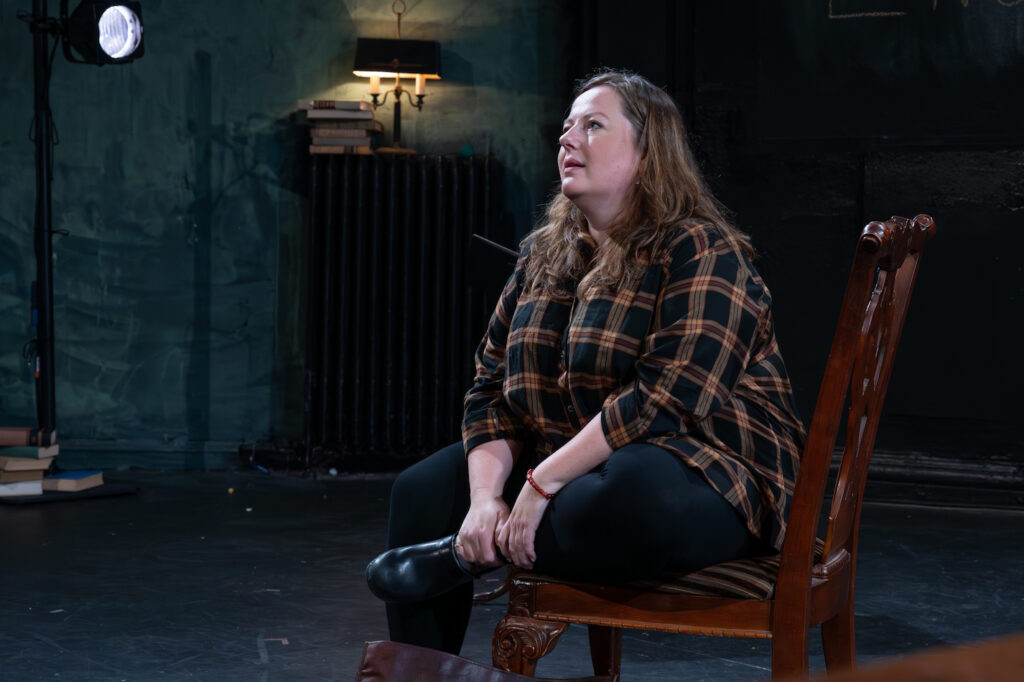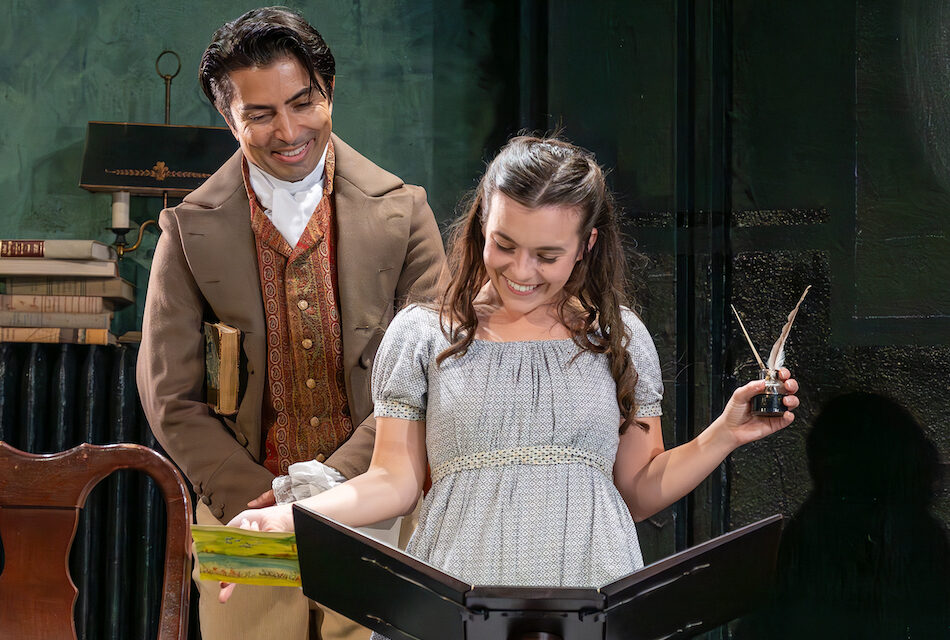Theater Review by JK Clarke . . . .
Considering the dearth of intellectually challenging plays on New York City’s vaunted stages in recent years, the staging of one of the most intelligent, complex and highly praised works of theater in the past 100 years, Arcadia, by the celebrated and brilliant Tom Stoppard, should be an occasion for celebration. And with one of the city’s cleverest and more daring directors, Eric Tucker—artistic director of theater company Bedlam, which is producing the show—at the helm, it seems even more placating for the city’s intelligentsia. But is it? This new off-Broadway revival—playing through December 10 at West End Theater—while competent, lacks the meaningful production it not only deserves but demands.
Arcadia—often described as a comedy with a tragedy trapped inside—is a seriously complex play set in two distinct time periods: the early 19th century and the late 20th century (probably 1990-91, when it was written)—that maintains a through-line connecting personal relationships. The play also vigorously addresses comparative thought patterns about chaos theory and integral mathematics and their evolution during the interval between the play’s two eras. Fortunately, it is written in such a way that one need not be a rocket scientist to understand it. Stoppard has stated his goal with the play was to reach all audiences, but also to engage, at a higher level, the small handful of physics and mathematics types who “get” the deeper scientific discussions. I can’t count myself among them, but I am intrigued, and that is one of the play’s triumphs.

In Arcadia, one finds the thread of the departure from “Newtonian” thinking (a rational, orderly approach to questions about the universe and nature) to recent (late 20th century) approaches to challenging scientific orthodoxy and examining questions of data analysis (such as quantum physics and fractal geometry) and overall cause and effect (the ol’ “butterfly flaps its wings in Beijing and changes the weather patterns in New York two months later” discussion). When he wrote the play, which he wanted to imbue with a sort of controlled chaos, Stoppard could not have known how intensely algorithms would play into our daily lives (being responsible for knowing too well, based on predictability borne of our seemingly random behavior on social media, what music we should listen to or what underwear we not only should buy but probably need right now) some 20 years later; but his discussions in the play prove remarkably prescient.
The early 19th-century character in Arcadia, Thomasina (deftly played by Caroline Grogan), a remarkably brilliant and precocious schoolgirl with insight into chaos theory two centuries ahead of her time—despite not having the advantage of being able to use a calculator or computer, else she likely would have discovered fractal mathematics on her own—displays similar foresight. She is a curious, normal teen as well, and is ultimately undone by one of those simple twists of fate foretold by mathematical possibility imbued in this self-same “chaos.” So, too, is her Newtonian tutor, who is driven into seclusion following a preventable tragedy.
Whilst staging a Stoppard play, a couple of very important elements must be taken into consideration: first, the ability for audience members to hear, very clearly and crisply, all of the dialog. One takes it for granted that most audiences are somewhat familiar with the storyline of most Shakespeare plays, but not so with Stoppard; and yet his lines are, if not moreso, as intricate and nuanced as the Bard’s—so any lines missed by the audience can throw the narrative off-kilter, or certainly make for some gaps in understanding. Unfortunately, the stage at the West End Theatre, which was built over 100 years ago as a very attractive Methodist church, has acoustic shortcomings, being better suited for soaring choruses rather than intricate dialog.


Second, Stoppard’s characters are products of their environment and not stock Everyman figures in the traditional sense. Thus, in Arcadia, the very Englishness of its characters, and even their period (modern versus Romantic) and class, are essential to the overarching impact and message of the play. Significantly, then, Bedlam’s American-accented actors (and thank goodness they didn’t try to put on fake English accents, as that never works out well) inevitably lose the dimensions of their English counterparts and reduce the impact of the entire play. Along the way, we lose the essence of several jokes and the overall wry, cynical humor for which Stoppard is famous. At a point late in the play, Hannah (Zuzanna Szadkowski) reveals her dispassion for marriage: “I don’t know a worse bargain. Available sex against not being allowed to fart in bed.” Sadly, the (usually quite funny) joke falls flat in this production and wafts out into a slightly bemused audience. Lacking the contrast of English civility with the absurdity and coarseness of the gags, the humor wanes.
I went into this production with trepidation, as Bedlam tends to fluctuate between inspired takes on classic works (I’ve yet to see a more brilliant production of Twelfth Night than the two they ran in repertory in 2015) and sometimes sophomoric engagements—last year’s production of The Winter’s Tale, featuring tortilla slap fights (yes, you read that correctly) was the absolute nadir of their production history and cause for concern going forward.
But possibly because of licensing issues, the script was barely, if at all trifled with, and the company took a very serious approach to the play. Bedlam-esque antics only appeared in the second act, when the cast (now sitting in the seats while the audience sat on stage, another Bedlam trademark) almost acrobatically tossed props to one another. An interesting trick, to be sure, as the scenes involved a merge of the play’s two periods—but also terribly distracting: will they catch that book they just tossed, or . . . wait, what did she say???


John McDermott’s simple set, as prescribed in Stoppard’s detailed stage directions, was augmented by the building’s architecture, with a curved stage and vaulted portals. Charlotte Palmer-Lane’s Regency costumes were appropriately elegant, though the contemporary costumes were considerably less inspired and a bit on the sloppy side.
For a small, independent production, this Arcadia is laudable despite some basic shortcomings. Its complications reveal the necessity for larger, more thorough versions in the future. Recent, celebrated productions of Stoppard plays (particularly the 2018 Tony-winning revival of his equally challenging Travesties) illustrate why. It’s an important play to see and it should have all the necessary elements and clarity to successfully deliver it to eager audiences.
Arcadia. Through December 23 at The West End Theatre (263 West 86th Street, between Broadway and West End Avenue). Three hours, five minutes, with one intermission. www.bedlam.org
Photos: Ashley Garrett
Cover photo caption: Shaun Taylor-Corbett and Caroline Grogan


















